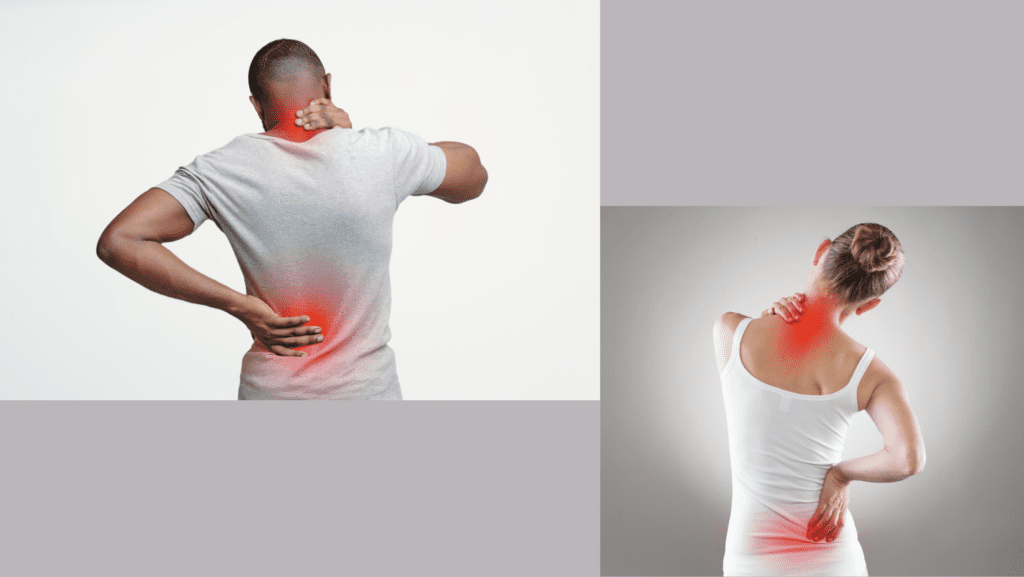Many of us are familiar with the age-old advice to avoid sleeping on your stomach for the sake of good posture. But what about the impact on your backside? Can this sleep position actually enlarge your glutes?
The answer, like many things related to sleep and body shape, is a little more nuanced.
Fat Distribution and Sleep Position: Not a Direct Link
While countless nights spent catching Zzz’s on your stomach might be a habit, rest assured, it won’t directly plump up your backside. Science suggests sleep position has minimal influence on fat distribution. Your body’s fat storage strategy is primarily determined by genetics, hormones, and your overall calorie intake.
However, sleep position can affect other factors that indirectly influence where your body stores fat. For instance, posture and muscle tension can be impacted by how you sleep. Remember, a restful night’s sleep is a key driver for overall health, which can positively influence your body’s ability to manage fat stores.
So prioritize a comfortable sleep position that works for you, and focus on a balanced diet and regular exercise for a healthier, happier you!
Sleep Quality and Cortisol: An Indirect Connection
While countless nights tossing and turning can leave you feeling ragged, the impact of poor sleep extends far beyond fatigue. Chronic sleep deprivation disrupts the body’s natural production of cortisol, the stress hormone. This hormonal imbalance can lead to increased belly fat storage, as cortisol promotes the breakdown of muscle tissue and encourages the body to store fat more readily.
Interestingly, research suggests a link between sleep and fat distribution, though it’s a more subtle connection. Studies haven’t found a direct cause-and-effect between sleep position and body composition (i.e., sleeping on your stomach won’t magically deposit fat in your glutes).
However, ensuring quality sleep through good sleep hygiene practices can significantly improve your overall health, which can indirectly influence body composition for the better.
Potential Drawbacks of Stomach Sleeping
While not directly linked to a bigger bum, sleeping on your stomach can have other drawbacks that can impact your overall well-being:
Neck and Back Pain:
While catching some shut-eye in any position is better than none, stomach sleepers beware! This seemingly innocuous sleep style can wreak havoc on your spinal alignment. Imagine your spine as a naturally curved rod. Stomach sleeping forces your neck to hyperextend and your lower back to arch unnaturally, putting undue stress on these delicate areas.
To breathe comfortably, you’re also required to turn your head to one side, further exacerbating the strain. Over time, this can lead to chronic neck and back pain, taking a toll on your overall well-being. So, if you’re a stomach sleeper experiencing aches and stiffness, consider a position switch for a pain-free night’s rest.

Digestive Issues:
While a good night’s sleep is essential for overall health, stomach sleeping can disrupt the delicate balance in your digestive system. The increased pressure on your abdomen due to this position can worsen acid reflux symptoms for some people.
If you frequently experience heartburn or indigestion, particularly at night, stomach sleeping could be the culprit. Consider talking to your doctor to see if sleeping on your back or side might be a better option to find relief from acid reflux and promote a more comfortable night’s sleep.

Wrinkles:
While many associate sleep position with body shape, science hasn’t confirmed a direct link between fat distribution and how you catch your Zzz’s. However, your sleep style can definitely influence other aspects of your health. For example, as a sleep expert, I often see stomach sleepers complaining about wrinkles.
The constant pressure on your face from pressing it into the pillow for hours can contribute to the formation of those unwanted lines. So, if you’re a stomach sleeper and those morning creases are a concern, consider switching to your back or side – your skin will thank you!

Finding the Best Sleep Position for You
The ideal sleep position for your body is the one that allows you to sleep soundly throughout the night with minimal discomfort. Here’s a breakdown of some popular positions, along with their pros and cons:
Side Sleeping:
While stomach sleeping might be your go-to for drifting off, it’s important to consider other positions that can maximize your comfort and minimize potential drawbacks. Side sleeping, for instance, can be a beneficial choice for many. Spinal alignment is key here – think of your body forming a straight line.
To achieve this, a pillow with the right thickness cradling your head is crucial. Placing a pillow between your knees can further improve alignment and reduce pressure points on your lower back and hips. This position can also be a good option for those who experience shoulder or neck strain, as stomach sleeping tends to exacerbate these issues.
Ultimately, the best sleep position is the one that allows you to fall into a deep, restful sleep without waking up with aches and pains. As a sleep expert, I always recommend experimenting with different positions and prioritizing comfort to find the perfect match for your body.
Back Sleeping:
While stomach sleeping can be comfortable for some, it’s important to consider your overall sleep quality and potential for pain. For those who experience snoring or sleep apnea, stomach sleeping might seem like a godsend. However, in my experience as a sleep enthusiast, the potential for spinal strain and neck pain often outweighs this benefit.
Back sleeping, on the other hand, is widely considered the excellent position for spinal alignment. By keeping your spine in a neutral position, you can reduce the strain on your neck and back that can lead to pain and discomfort.
However, people who suffer from frequent heartburn or acid reflux might find back sleeping exacerbates these issues, due to the overly high position of the esophagus. In this case, side sleeping might be a better option. The key is to experiment and find the position that allows you to breathe comfortably and wake up feeling refreshed and pain-free.
Making the Switch:
If you’re a confirmed stomach sleeper looking to make a change, here are some tips:
Start Gradually:
Craving childhood slumber memories? Ditch the stomach snooze! Gradually shift to side sleeping with short stints throughout the night. A thin pillow for your forehead, not a neck cranker, keeps your head neutral. Experiment with pillow options and mattress firmness for ultimate comfort. Listen to your body, adjust as needed, and be patient.
Supportive Mattress:
Forget the myth about stomach sleeping and a bigger behind! While comfy, it can strain your spine. To embrace side sleeping, invest in a supportive mattress that cradles your body’s curves and promotes healthy spinal alignment. As a sleep enthusiast, I recommend consulting a mattress specialist to find the perfect firmness for your new sleep position.
Relaxation Techniques:
While stomach sleeping might conjure childhood comfort, ditching it for side sleeping can benefit your body. To ease the transition, incorporate relaxation techniques like deep breathing or progressive muscle relaxation before bed. This can help ease both your body and mind, promoting a smoother transition to sleep.
Conclusion
While cozying up for sleep, some of us instinctively curl into a fetal position, embracing the comfort of sleeping on our stomachs. But can this nightly routine lead to a bigger behind? The answer is more nuanced than a simple yes or no.
While sleep position itself won’t directly cause fat storage in your glutes, chronically sleeping on your stomach can lead to spinal misalignment and pain, which can disrupt sleep quality and hinder your overall well-being. This lack of quality rest can wreak havoc on your hormones, potentially increasing cortisol levels, a stress hormone linked to fat storage.
Additionally, poor sleep posture can exacerbate digestive issues, further impacting your comfort and overall health. If you’re concerned about sleep position and its impact on your body, consulting a doctor or sleep specialist can be a great first step.
They can provide personalized advice to optimize your sleep environment and ensure you’re getting the restful, pain-free sleep you deserve to wake up feeling refreshed and ready to take on the day.
Check Similiar Guide: Can Mold Grow in Your Stomach? Separating Myth from Medical Fact
Frequently asked Questions
Can sleeping on my stomach make my butt bigger?
No, there’s no scientific evidence to support this. Fat distribution is primarily influenced by genetics, hormones, and calorie intake. Sleep position doesn’t directly affect where your body stores fat.
Will sleeping on my stomach make me lose weight in my butt?
Not directly. Sleep position itself doesn’t cause targeted fat loss. However, chronic poor sleep can lead to elevated cortisol levels, which might influence overall fat distribution (though not specifically in your glutes).
Is stomach sleeping bad for my back?
It can be. Stomach sleeping can strain your neck due to the unnatural head position and put stress on your lower back. Consider trying side sleeping with a pillow between your knees for better spinal alignment.
Could stomach sleeping worsen heartburn?
Yes, for some people. The pressure on your abdomen from sleeping on your stomach can contribute to acid reflux or heartburn. If you experience these issues, side or back sleeping might be better.
Does stomach sleeping cause wrinkles?
The constant pressure on your face from being pressed down can potentially contribute to wrinkles for some individuals.
What’s the best sleep position for a good night’s rest?
The ideal position is the one that allows you to sleep soundly and comfortably. Side sleeping is generally considered beneficial for spine health, but back sleeping can also be good. Experiment to find what works best for you.
How can I transition away from stomach sleeping?
Start gradually. Use a thin pillow under your forehead when sleeping on your stomach to encourage a more neutral head position. Slowly shift to side or back sleeping over time. A supportive mattress and relaxation techniques can also help.
Should I worry if I’m a confirmed stomach sleeper?
Only if you experience discomfort like back pain, heartburn, or poor sleep quality. If so, consider making gradual changes to a more comfortable position.
Is there a specific pillow that helps with stomach sleeping?
There isn’t a perfect pillow for stomach sleepers, as it can strain your neck. However, a thin pillow with minimal loft can be a better option than a thick one.
Who should I consult if I have concerns about sleep positions?
If you have sleep-related discomfort or suspect sleep apnea, consult a doctor or sleep specialist for personalized advice and solutions.
